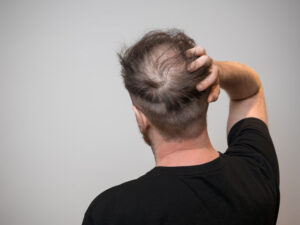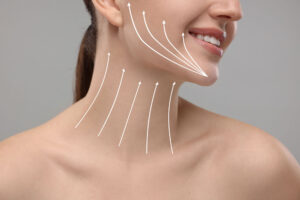As we age, our bodies naturally decline in hormone production. For many people, this decline is accompanied by symptoms that are disruptive, uncomfortable, and hard to manage. If you’ve been feeling “off” lately, and you can’t quite figure out why, a hormone imbalance could be the culprit.
Hormone Replacement Therapy (HRT) helps replenish declining levels of essential hormones like estrogen, progesterone, and testosterone, helping your body return to balance. But how do you know when it’s time to consider treatment? Here are the most common signs that you may benefit from HRT.
What Is HRT?
Hormone Replacement Therapy (HRT) is a medical treatment that replenishes the body’s natural hormones when levels begin to decline due to age, stress, or medical conditions. Most commonly, HRT involves supplementing estrogen and progesterone in women, and testosterone in men, to help restore hormonal balance. There are different forms of HRT (including pills, patches, creams, injections, and pellets), and treatment is highly personalized based on your symptoms and lab results.
What Are Some Signs You Might Need HRT?
Hormonal changes don’t always announce themselves loudly. Over time, however, they can quietly disrupt nearly every aspect of your health. From your energy levels to your mood, sleep, and even your weight, imbalanced hormones can leave you feeling unlike yourself.
While many people chalk these symptoms up to aging or stress, they often point to something deeper. Below are some of the most common signs that it might be time to consider hormone replacement therapy.
Persistent Fatigue That Doesn’t Improve with Sleep
If you’re sleeping a full eight hours but still waking up exhausted, it could be more than just stress. Low testosterone in men and low estrogen in women are both linked to decreased energy levels and chronic fatigue. Hormones play a vital role in how your body metabolizes energy, and when they’re out of balance, even the smallest tasks can feel overwhelming.
Mood Swings, Irritability, or Depression
Sudden emotional shifts, increased anxiety, or depressive episodes may also point to a hormone imbalance. Estrogen, progesterone, and testosterone all affect neurotransmitters like serotonin and dopamine, which regulate mood. When these hormones drop, your mental and emotional health can take a hit.
Weight Gain—Especially Around the Abdomen
Struggling to lose weight despite a consistent diet and exercise routine? Hormonal shifts can directly impact your metabolism. Declining estrogen or testosterone levels can lead to increased fat storage, especially around the midsection.
Additionally, hormonal imbalances can increase insulin resistance, making it harder for your body to process sugars and carbs efficiently. If your weight gain feels stubborn or unexplained, hormones could be the underlying issue.
Low Libido or Sexual Dysfunction
A sharp decrease in sexual desire, or pain during sex for women, can signal the need for HRT. Testosterone is a key hormone for sexual drive in both men and women, while estrogen helps maintain vaginal lubrication and elasticity.
Men may experience erectile dysfunction, while women may notice dryness or discomfort. Hormone therapy can help restore healthy sexual function and revitalize intimacy.
Hot Flashes and Night Sweats
These hallmark symptoms of perimenopause and menopause are hard to ignore. If you’re frequently waking up drenched in sweat or experiencing sudden heat waves throughout the day, fluctuating estrogen is likely to blame. Hormone Replacement Therapy has been shown to dramatically reduce the frequency and severity of hot flashes and night sweats, improving sleep and quality of life for many women.
Trouble Concentrating or “Brain Fog”
Difficulty focusing, forgetfulness, and mental sluggishness (often referred to as “brain fog”) can also result from hormonal shifts. Estrogen and testosterone both support cognitive function. When they drop, many people experience reduced clarity, memory lapses, or an inability to stay focused.
Sleep Disturbances or Insomnia
Hormones play a key role in regulating your circadian rhythm and sleep cycles. Low estrogen can lead to nighttime restlessness and difficulty falling or staying asleep, especially for women in perimenopause or menopause.
Testosterone imbalances in men can also cause disrupted sleep. HRT can help normalize your sleep-wake cycle, leading to deeper, more restorative rest.
Thinning Hair or Dry Skin
A noticeable change in hair texture, hair loss, or unusually dry, itchy skin can be another sign that your hormone levels are off. Estrogen helps maintain skin hydration and elasticity, while testosterone and thyroid hormones influence hair growth.
Loss of Muscle Mass or Strength
Testosterone plays a significant role in muscle development and maintenance. For both men and women, a dip in testosterone can result in reduced muscle tone, slower recovery after exercise, and overall physical weakness.
Irregular or Missed Periods
In women, inconsistent menstrual cycles, especially in your 40s or early 50s, can be an early sign of perimenopause. Periods may become heavier, lighter, more spaced out, or disappear altogether. HRT can help regulate your cycle, relieve related symptoms like cramping and mood swings, and ease the transition into menopause.
Who Is a Candidate for HRT?
Not everyone who needs hormone therapy fits the traditional mold. While common in midlife, hormone imbalances can affect people earlier or for reasons unrelated to age.
At Still Well Med Spa, we don’t treat numbers — we treat you. Our individualized approach means we consider your lifestyle, stress levels, cycle history, and symptoms as a whole. If something feels off, and nothing else has helped, it might be time to look at your hormones.
Reclaim Your Balance with HRT
If any of the symptoms above sound familiar, you don’t have to accept them as your new normal. Hormone imbalances are treatable, and you deserve to feel like yourself again. At Still Well Med Spa, we offer personalized hormone therapy plans designed to restore vitality, confidence, and control. From your first consultation to ongoing support, we’re here to help you feel your best at every age. Call us at (718) 663-4006 or book your consultation online today.






